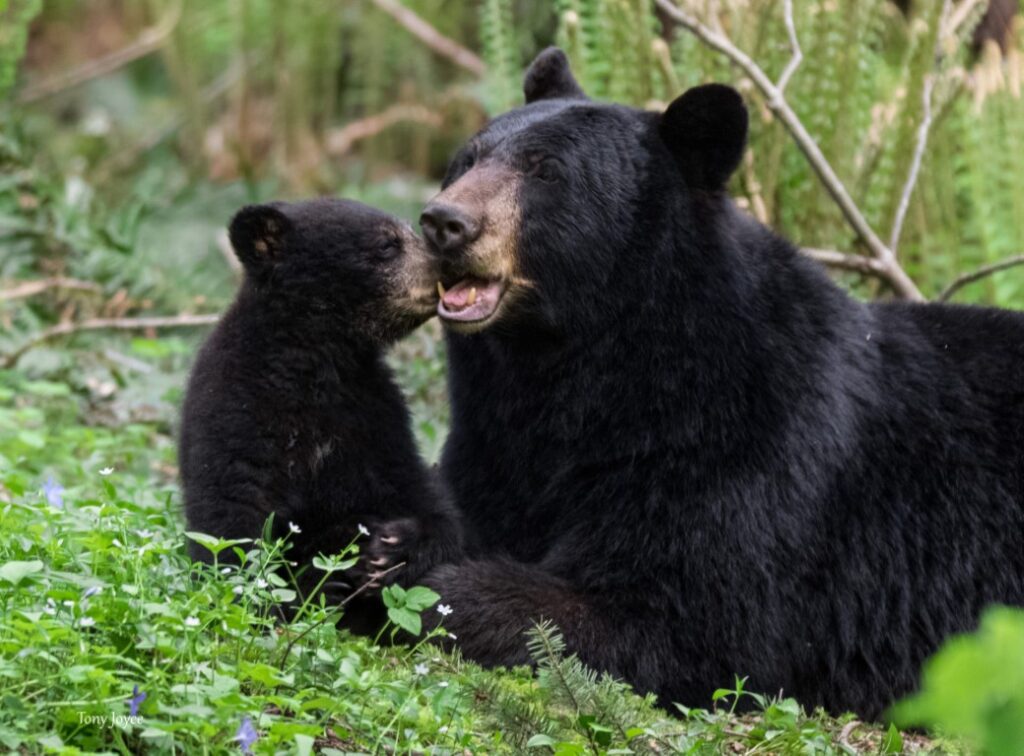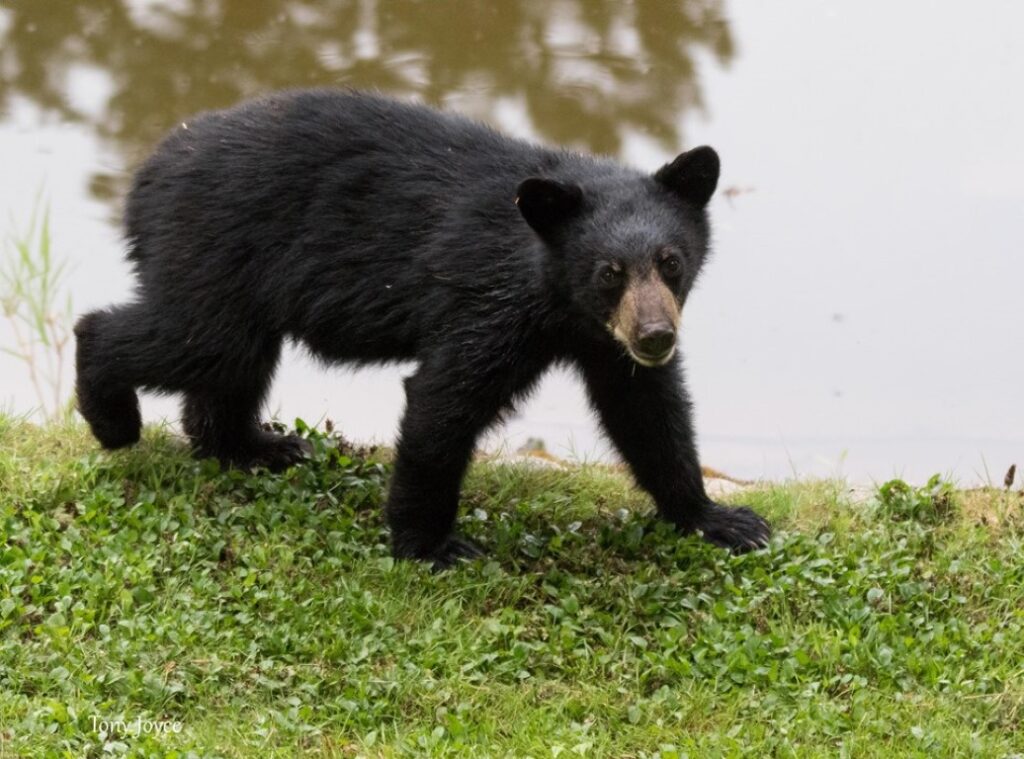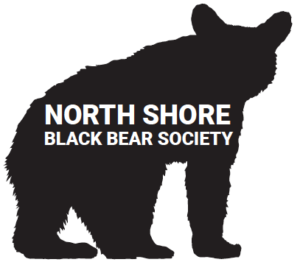Sharing the North Shore with Black Bears

We share British Columbia with an estimated 120,000 – 160,000 black bears. Peaceful coexistence with these magnificent animals is possible if we learn more about their behaviour, their reasons for being in urban areas, ways to reduce attracting bears to our homes and our responsibilities when out exploring in areas where bears live.
The North Shore is a diverse ecosystem, rich with creeks, rivers, and green spaces, creating natural wildlife corridors that extend through residential areas. From sea to sky, the North Shore is bear country. It is normal to see black bears and other wildlife passing through the neighbourhood search of food, rest, and safety, even during the day. We have a responsibility to make efforts to secure food around our homes from bears and to never intentionally encourage them to stay in the neighbourhood. Feeding bears is against the law. For bears in British Columbia, the consequences for finding food in areas close to people is deadly. Each year in North and West Vancouver, black bears are killed for finding unnatural foods from humans and being present in urban areas. The NSBBS works to reduce the number of bears killed on the North Shore. When a bear is removed from an area, another will soon take their place. Living with bears is part of life for all North Shore residents (with the exception of anyone living in lower and central Lonsdale). We are here to support residents, visitors, and our bears!
Black bears are a highly misunderstood species and are commonly misrepresented, consequently causing many people to have an exaggerated fear of them. In fact, black bears are calm, polite, intelligent, and tolerant animals who are are adapting to increased human and dog activity in areas where they live. Bears are not fearful of humans but try to avoid close encounters. Do not expect a bear to run away from you or your dog, that wastes energy. Bears rarely approach people with intent. When they are in the neighbourhood, they are not seeking to hurt people, dogs or cats, they are looking for opportunities to supplement their natural diet, a quiet place to snooze in a safe place or are just passing travelling through.
Bears can be found in almost any area on the North Shore, from the beach to the mountains. To date, Lower and Central Lonsdale are the only areas where bears are not sighted. We are supported by the District of West Vancouver, The District of North Vancouver, and the City of North Vancouver, as bears can be found across the North Shore. The City of North Vancouver reports the least amount of bear activity, but sightings are common in some communities.
Healthy adult male bears typically occupy the best home ranges, living further away from people and often more active at night. This forces vulnerable bears such as females with cubs, juveniles, injured or older bears to seek safety from dominant males by being more active during the day and living on the periphery of areas occupied by humans.
Bears are most active from late February to mid-December on the North Shore. Mild winters and access to unnatural food from humans contributes to some winter activity. Male bears who can find food may den for much shorter periods over the winter. Some bears leave their dens to search for unnatural foods and then return. You could see a bear at any time of year.

Sightings of black bears are common, close encounters are less frequent. By nature, black bears are calm and peaceful, they aim to avoid close encounters and confrontation with humans and dogs. In most cases, the bear is aware of your presence and moves on before you even notice they are there. If you encounter a bear, your first response is to show through your tone of voice and body language that you are not a threat to them. Remember to:
Stay calm – take a deep breath.
Speak calmly to the bear (in any language) – identify yourself as a human in a calm tone.
Slowly back away – give bears lots of personal space and an exit.
Find out more on black bear behaviour and encounters here
The North Shore Black Bear Society supports the coexistence of humans and bears through education. Help us to collect valuable data, target education and support humans and bears by reporting all North Shore bear activity to us. Link to report form

